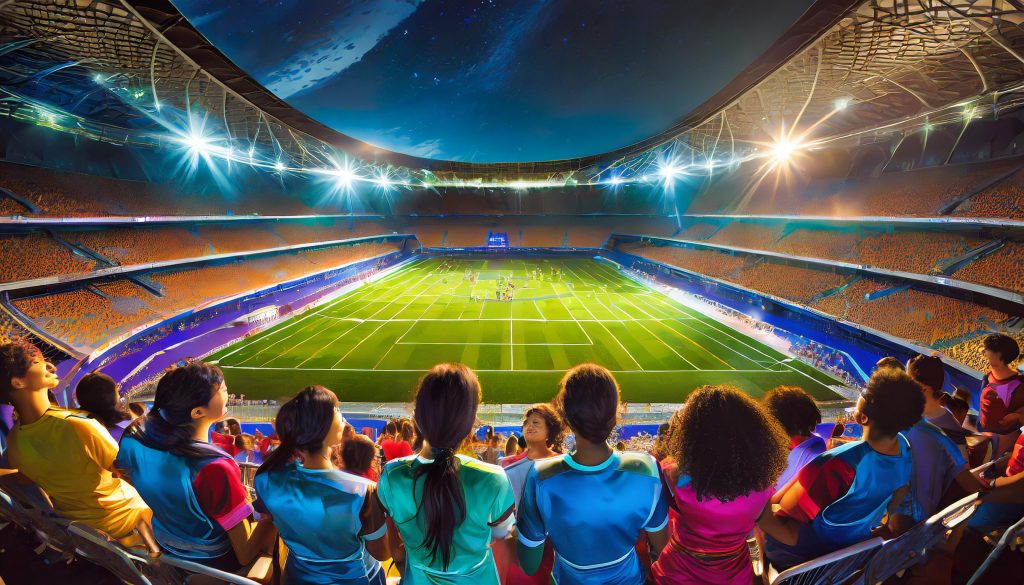It is International Women’s Day and the Accelerate Progress campaign theme is passionately framed in the arena of sports audiences.

Earlier this year, USA Today reported on a study claiming Gen Z audiences don’t care about sports, with only 23% of them describing themselves as passionate sports fans compared to 42% of millennials.
These digital natives unsurprisingly spend the most time of any cohort in front of screens, they are hyper engaged on TikTok mostly, comprising 60% of the billion+ users on the shortform video platform.
There is a mostly despairing narrative implicit in most mainstream media despatches on this Gen Zs, e.g. doomscrolling young pessimists who lack a sense of civic duty and all that ‘boomer jazz’.
Through the prism of women’s sport nothing could be further from the truth, as we enter the new audience era.
Generation Z are people born between 1996 and 2010, their identity does not just comprise digital interactions but also manifests in visceral, physical live event experiences.
From Brit Pop to Billie Eilish, these people certainly know how to party in the real world and not in some imagined metaversial dystopia that the Daily Telegraph might dream up.
There is a brilliant dispatch by Media Monks on the Women’s World Cup and Gen Z audiences, delivered shortly after last year’s global summer tournament.
Drawing on Brandwatch consumer research data she forcefully makes the point that rather than being sports agnostic, 43% of 16 – 24-year-olds actively engage with sports content on YouTube compared to 30% of them following the action on linear TV.
On top of that there is a mind-blowing 74% of older Gen Zs (born after 2003) who expressed an active interest to participate in fan celebrations within a public, curated setting e.g. fanzones, stadia, pubs and clubs.
The positives of this bunch’s contribution to fan engagement is sophisticated and prolific.
The share of voice by gender for the 2023 Women’s World Cup in social media, blogs, forums and new sources from 20 July – 16 August 2023 was 24% female to 76% male, according to Brandwatch.
Although the above dialogues could be construed as another example of men barging into the conversation around women’s football – it more likely signposts a transformative shift in the mindset around the women’s game – one of unity, support, passion and a longer-term commitment to the sport.
Sponsors who engaged in Women’s World Cup campaigns, according to Brandwatch, will have shared in the exposure of 3.2 billion views for the official #FIFAWWC hashtag on TikTok alone.
Ambitious marketing initiatives specifically targeted Gen Zs, like Nike’s 1000 Victories TikTok activation which invited fans to share their definitions of victory.
The campaign attracted over 63 million views and leaned in to three key interests, enthusiasms and behaviours.
Generation Z are more interested, according to McKinsey, in belonging to an inclusive, supportive community, they are more politically and socially active, advocating for what they believe on social media and they are individualistic, with a stronger sense of personal expression.
Live events and appointments to view, either in a stadium or on a screen, blended with authenticity that encourage togetherness and champions social responsibility are the successful campaign ingredients required to engineer the appropriate Gen Z audience engagement.
#HappyInternationalWomensDay